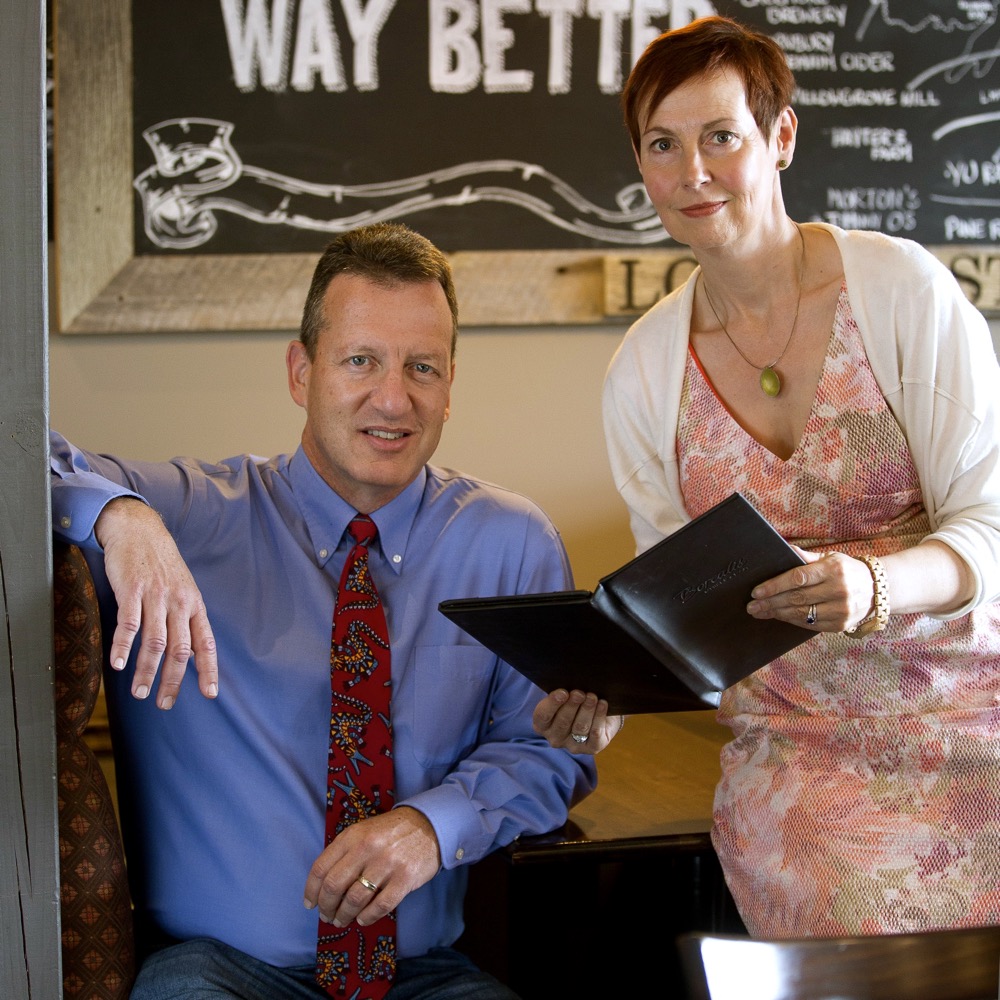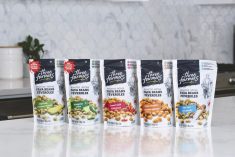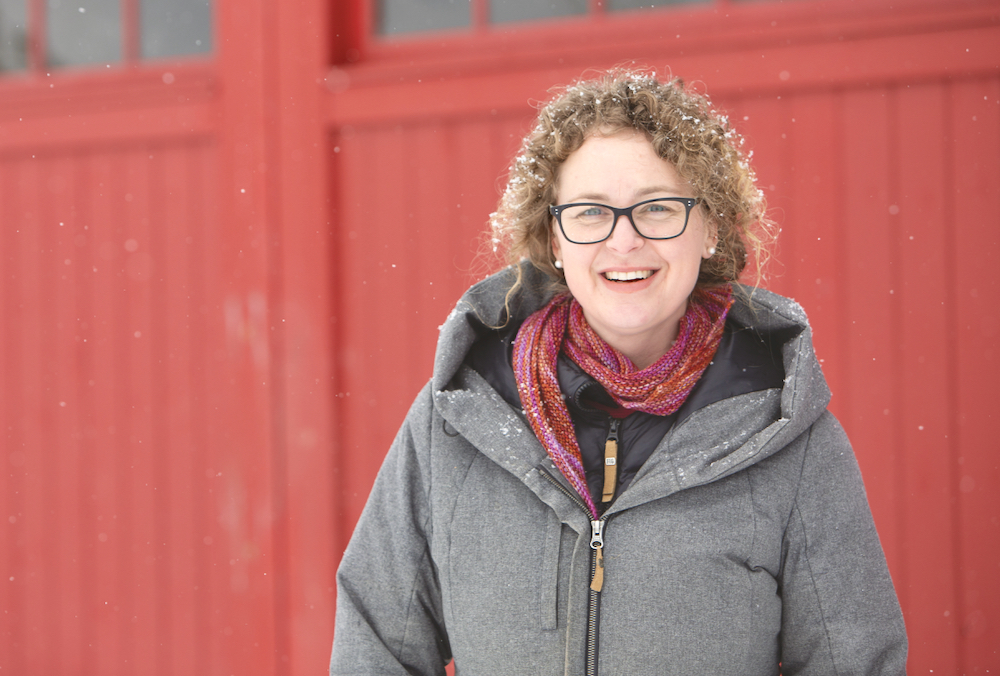Among my questions was the natural one for a skeptic to ask. “How are you going to convince farmers to take on an agency and pay all those fees?”
Seated across from me in a Guelph restaurant called Borealis — a thriving, trendy, happening sort of place that describes itself as “obsessively local” — agency execs JoAnn McArthur and Len Kahn didn’t pause.
“We aren’t,” said Kahn.
“Farmers will decide for themselves when the time is right,” Kahn said. “It’s like knowing it’s time to get an accountant.”
Read Also

‘No agenda, no attenda’: How to professionalize your family farm meetings
Establishing meeting ground rules can help a farm family find ways to communicate that work for the business and the family.
“It will come from their own business goals… they won’t need anyone to tell them.”
McArthur and Kahn are betting that a growing number of farmers will begin deciding an agency is exactly what they need, and that it will become a powerful new dynamic in Canadian agriculture.
It’s a prospect that McArthur wants to be at the centre of. Canada’s huge grocery sector, she says, is primed and set for farmers to play a bigger role than ever.
This begins, though, as one of those convergence stories. McArthur and Kahn had gone to the same high school in Oshawa. Later, they both built careers in marketing and communications, but on opposite sides of the coin.
Kahn stuck with agriculture, building a Guelph-based agency called Kahntact and working on many of Canada’s biggest accounts, selling seed, crop chemicals, machinery and more.
But Kahn was also seeing the old boundaries start to become too limiting. If farmers stick on the farm side of the farm-food continuum, they’ll miss too many opportunities. “There’s a nexus between food and ag,” Kahn says. “It’s only going to get bigger.”
McArthur, meanwhile, focused on the consumer side of the food and beverage industry. She rose quickly, becoming a brand manager at Procter & Gamble, a marketing manager at Unilever and then president of Molson Sports & Entertainment, reporting directly to the president of Molson Canada.
She left, she says, because she wanted to build the kind of agency that she had wanted to hire, explaining that in order to sell beer, you have to score big with young men who no longer watch much network television.
“We would get the agencies together every year and we would keep saying, ‘No television,’” McArthur says. “And the agencies would keep coming back recommending huge advertising spends on television.”
The world was changing, and marketing wasn’t keeping pace, McArthur says.
And not only in beer. The food market is in the midst of a revolution too.
So today, McArthur is Toronto-based president of Nourish Marketing, Canada’s only marketing and communications agency devoted strictly to food, complete with test kitchens, food stylists, experts in every area of food wholesaling and retailing, and a storied chalk board where cutting-edge brand concepts get fleshed out.
But it starts with understanding the key driver in today’s food market, she says. Consumers want to trust their food.
“Our parents used to trust big food,” says McArthur. “Big used to equal trust.”
Now, she says, “Big is no longer beautiful. Millennial consumers no longer trust big food.”
The tidal wave
Kahn and McArther met when they were both pitching to do work for Agri-Food Management in Guelph, and soon saw the opportunity that led Kahn to become a partner in Nourish.
McArthur points out that because of the huge shifts in consumer attitudes, there’s blood on the floor at the mainline food companies. In the U.S., she says, the biggest 25 have lost $18 billion in a death-by-a-thousand-cuts spiral.
To stop that bleeding, companies like McDonald’s are linking their brands to the farmers who produce their food, such as in the fast-food maker’s Olympics ads, which focused not on the taste or the price of their hamburgers, but on the wholesomeness of the ranchers who raise their beef.
The point, says McArthur, is that McDonald’s saw it needed to create a new, farm-based story to embed the idea that it shares the values of its customers.
Now, say McArthur and Kahn, imagine that you didn’t have to try to link yourself to the farm. Imagine you ARE the farmer. The opportunities, they say, are essentially endless.
“It’s all about story,” says McArthur. “When you meet someone, you want to know their story. Now we want to know the story of our food too.”
As an agency, their role is to help figure out and communicate that story.
In food, however, getting that story across to consumers isn’t such an easy thing. Food is sold differently than anything else, McArthur says. Packaging is crucial, but designs must not only meet regulations and standards, they must work with the way that grocers work too. They need what McArthur calls “shopability and stockability.”
Besides, stores are already jammed. They already have a low-price, a store-brand and a premium brand for every product on their shelves, all shouting their own messages.
And on top of all that come the stocking fees that suppliers pay to get preferential shelf placement, and the labyrinthine relationships of suppliers, brokers and retailers.
It takes work and expertise to figure it all out. But there’s a rainbow that can make all that work worthwhile, says McArthur. “Everybody is looking for something new. Loblaws, Whole Foods, the independents… they’re all looking for the next big thing.”
Are you ready?
Kahn tends to be cautious. “If you have a product and you’re selling all you can make of it from your farm retail location, you don’t need us,” he says.
“You need us if you’re laying awake, saying to yourself, ‘This is such a great idea. There’s got to be more we could do with it.’”
“It has to be innovative,” agrees McArthur. “I don’t care if people tell you that your cookies are best, the world doesn’t need another chocolate chip cookie. There isn’t room for it… we do crush some dreams.”
But “innovative” is possible. Eversprings Farm near London, Ont. is a Nourish client, producing sprouted grain and seed products for a wide variety of food markets.
But innovative does mean that the product can be differentiated from other brands, and that it can carry a story.
And, McArthur emphasizes, “You should be able to come to me and say that you see a gap in the market.”
The product may still be in development at that stage. Nourish would then do a market assessment, followed by initial branding and naming work, and working up a road map for the best way to go to market, which might for instance involve starting up with a low-cost online, e-commerce approach, or test marketing on an exclusive basis with specially selected retailers.
At every step, you can expect a rigorous focus on the product’s differentiation “It needs to be expressed across all touchpoints,” McArthur says.
Planning for business
With Canada’s rapidly evolving food market, McArthur and Kahn see big opportunity for farmers to find such gaps.
Doing some quick mental arithmetic, the conservative Kahn says he sees the number of significant value-adding Canadian farms climbing to 5,000.
It’s a good thing, he adds, that these farms are inherently business minded. “We do better work when there’s already a business plan in place,” he says. “You should have the sort of plan you could take to the bank.”
Keep in mind, though, the plan has to be reality-checked. At Nourish, that could mean calling in brokers or distributors. “Nobody outside the food sector really understands how grocers work,” McArthur says.
“There are more opportunities now than there have ever been,” she adds. “Consumers want local, they want authentic, they want craft.
“The market has changed. Figure out your story… the time has never been better.”
Finding the right agency
So you think maybe it’s time to get some marketing help. What criteria should you use to choose your agency?
Here are tips from Nourish’s JoAnn McArthur and Len Kahn:
- Does the agency have deep knowledge in your product area? This typically means it will bring in people with extensive food experience.
- Review the agency’s other campaigns, especially in your sector.
- Specifically ask the agency how it will help you define success, and how it will measure and report on that success. Says McArthur, “It’s all about metrics.”
- Will the agency give you the cell phone numbers of its principals? McArthur says agencies are notorious for a kind of bait and switch. “They bring in the big hitters to get your business, but once you’re signed up, they walk away,” she says. “Know who is going to do the actual work.”
- Be sure you can build a good personal relationship with the agency, says Kahn. “It’s a people business,” he says. “Find an excuse to spend some time together. Play a round of golf. Is the chemistry good?”
















